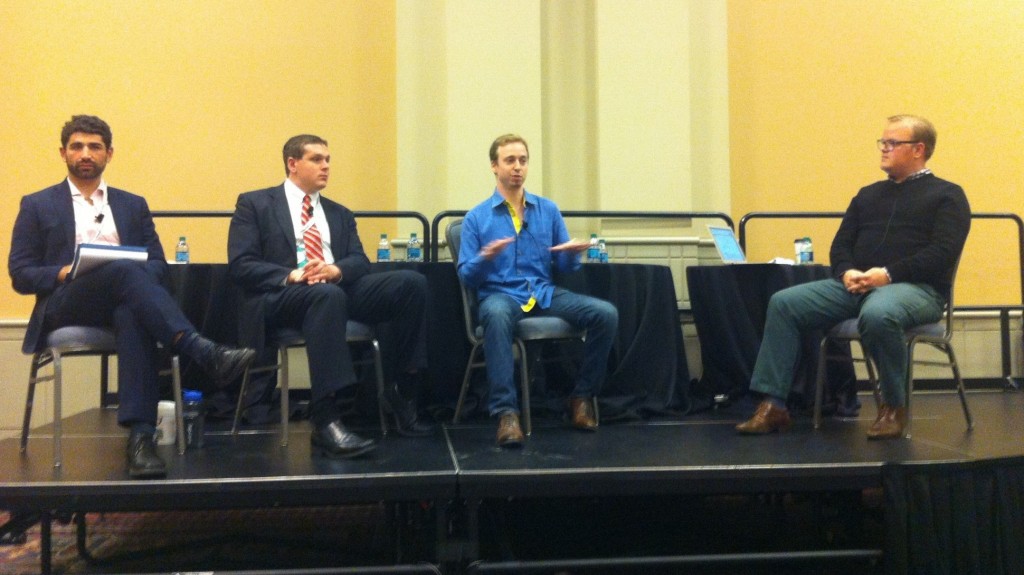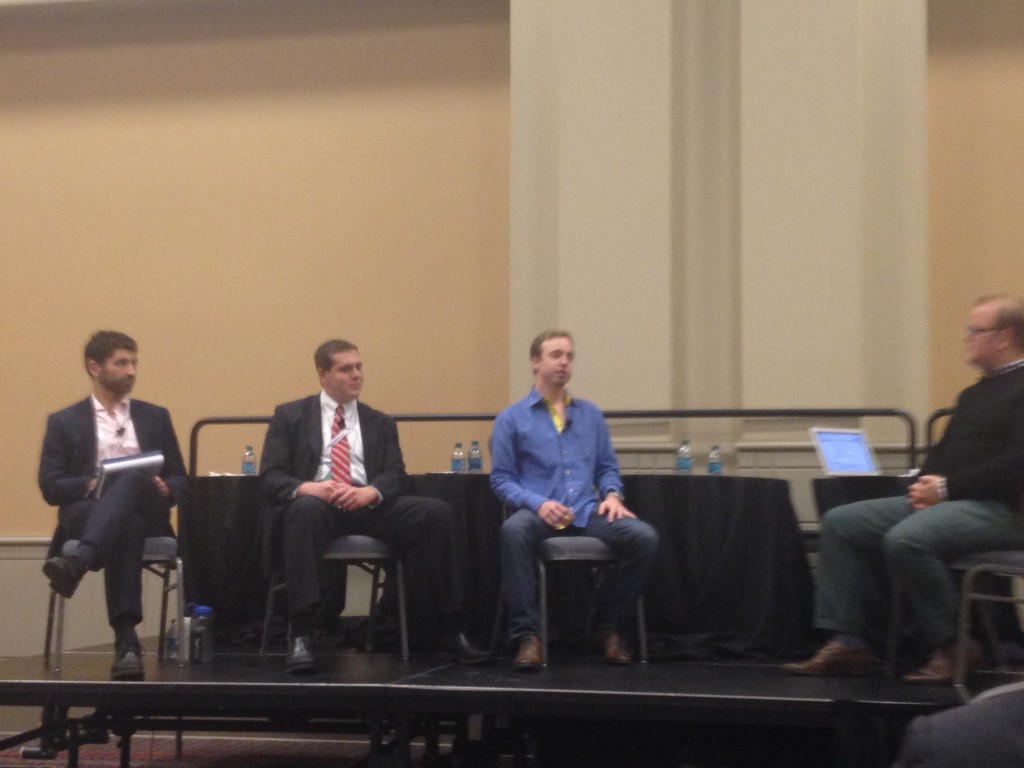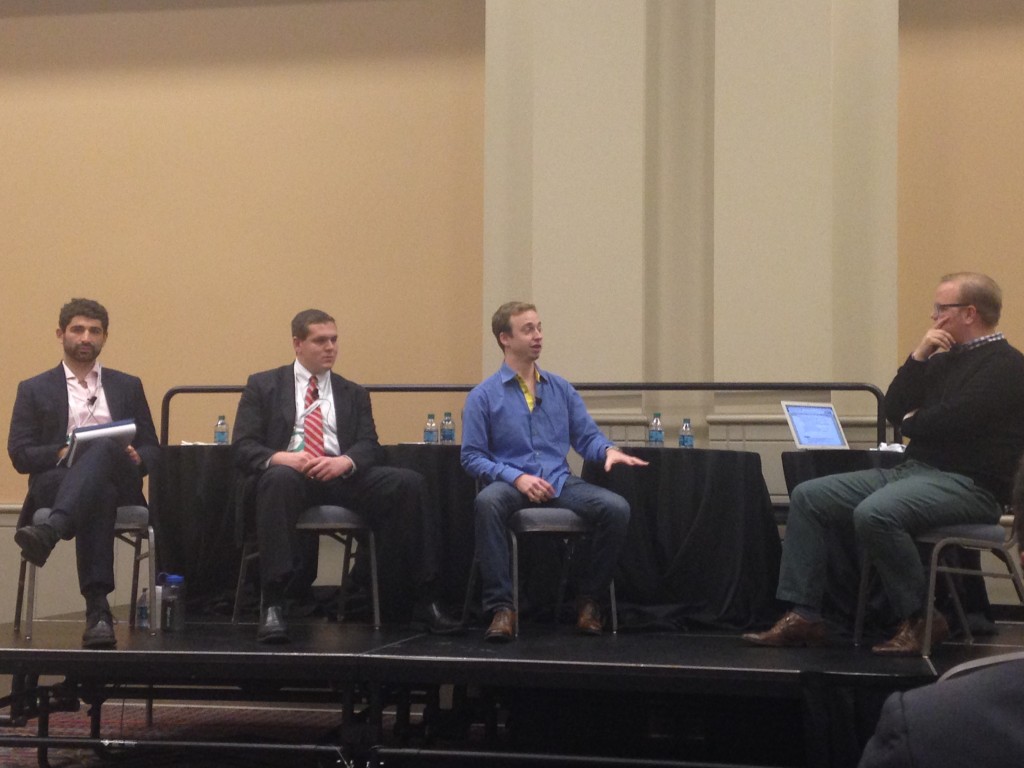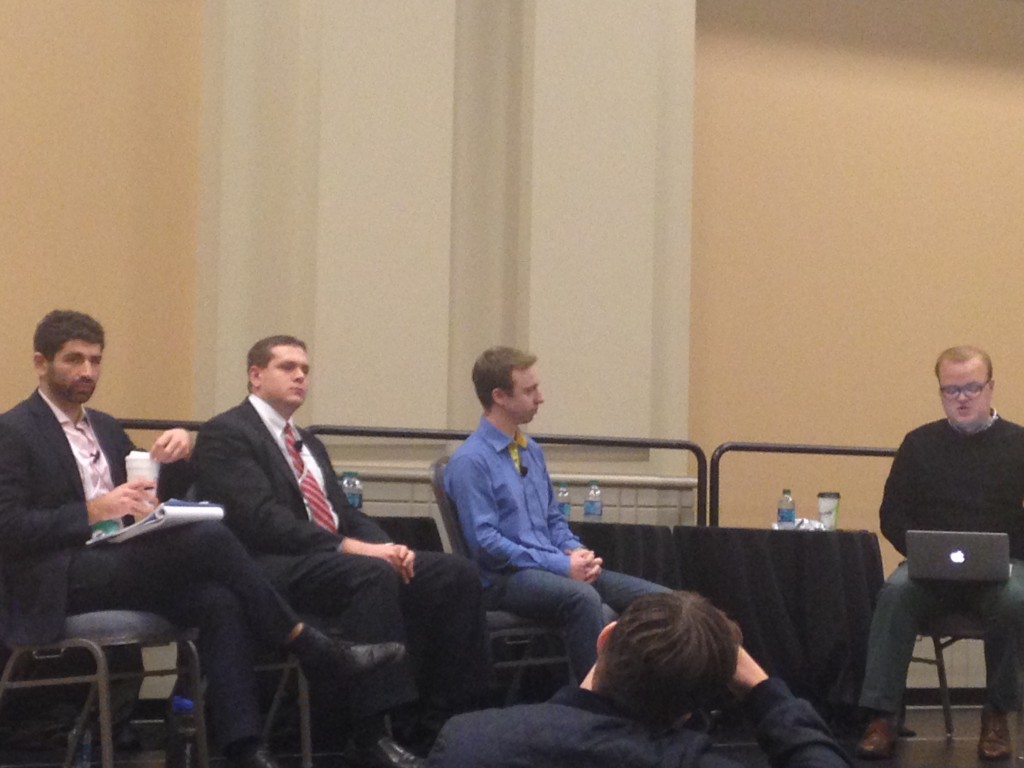Forbes Magazine invited me to speak on a panel at their inaugural 30 under 30 Summit in Philadelphia. The topic of the Panel was “The Lost Vote,” with a focus on how millenials view politics today. Moderating the panel was McKay Coppins of Buzzfeed. I spoke alongside Nate Levine (Founder, OpenGov)and Nathaniel Loewentheil (Policy Advisor, The White House National Economic Council).
Forbes has a writeup here:
With midterm elections just weeks away, the state of young voters and whether they will come to the polls remains a question. The reason for that may not be election, but the recent troubles in Washington and the rift that has caused with millennials.
“We are looking at a generation of voters who are very passionate about many issues, very plugged into the news, plugged into tech, know what’s going on in the world but are very uninterested in identifying with or participating in partisan politics,” said McKay Coppins, senior political writer at Buzzfeed.
Coppins moderated a panel with Assistant Professor of Law at the South Texas College of Law Josh Blackman, Founder of OpenGov Nate Levine and Policy Advisor for The White House National Economic Council Nathaniel Loewentheil.
The panel was part of the Forbes Under 30 Summit and discussed why voters don’t feel a major draw to a political party. Half of young Americans don’t subscribe to the Democratic or Republican party, the highest percentage the Pew Research Center has measured in the 25 years it has been tracking disaffiliation.
…
At the crux of the argument surrounding the lack of partisanship was trust and transparency. Winning back the trust of some Americans will be a major hurdle for any candidate running in the upcoming elections.
“What the last six years have taught us is that there is a serious lack of trust,” Blackman said. “Everything from wiretapping to Edward Snowden to drone strikes, all the things we thought were transparent, were not.”
I posted the audio here:
The primary point I tried to convey is that massive distrust in government is breeding libertarian sentiments. In the wake of the Snowden disclosures about NSA wiretapping, revelations that President Obama is using drone strikes to kill American Citizens, and the prosecution of reporters, there has been a paradigm shift. The very government that promised to be the most transparent administration in history is doing the precise opposite. McKay asked me if this means that Rand Paul is correct, and we are ushering in a libertarian moment. I don’t know if I’m willing to go that far, but I do think a lack of trust provides a fertile basis for libertarianism. I also explained that it is hard for any president to “resist the siren song of statism.” All Executives seem to steer into the shores.
One other area where Nate Lowentheil and I disagreed about was the role of technology to help income inequality. I cited Uber as an example of a disruptive technology that promotes economic mobility by dismantling occupational licensing. Now, people can pursue employment with Uber without having to jump through all the barriers to entry inherent with taxi cartels. I’ll let my friend Evan Baehr describe the exchange in tweet form:
“Best thing Obama has done is breed distrust in government” @JoshMBlackman on prospects for @RandPaulSenate
— Evan Baehr (@evanbaehr) October 21, 2014
“idea that Uber is a solution to inequality is laughable on its face” says elite, smug, Obama rep, making no argument to @JoshMBlackman — Evan Baehr (@evanbaehr) October 21, 2014
@JoshMBlackman is hopeful that Millennials will become Ubertarian – delight them with a service, turn them on unions/commissions
— Evan Baehr (@evanbaehr) October 21, 2014
More indictments of reporters under Obama administration than all previous ones combined according to @JoshMBlackman #Under30Summit — Evan Baehr (@evanbaehr) October 21, 2014
And some more tweets.
Thank u for a great panel @joshmblackman, Nate Levine, Nathaniel Loewentheil, @mckaycoppins#Under30Summit#LostVotepic.twitter.com/EiU70kM8SU
— Christina M. Graham (@ChrisMicheleG) October 21, 2014



